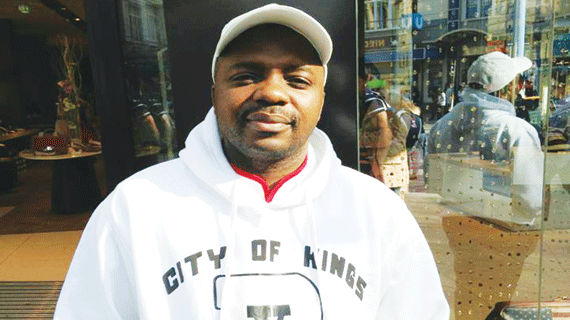
WEEK in week out we read, hear and sit at workshops trying to find answers as to why the music industry continues to struggle.
Artistes take the flack for lacking creativity compared to past generations while the public is blamed for buying less music and pirating most of the artistes’ work.
When I came across one well researched piece on how the millennial generation has killed the music industry, I felt I should share part of the contributions with my fellow artistes and countrymen.
In his article Thomas Honeyman a songwriter and entrepreneur in Los Angeles, US, convincingly explores how one generation was single-handedly responsible for killing the music industry.
He argues that the music industry is dead. We’re standing in the ruins of a business built on private jets, crystal CDs and million-dollar recording budgets.
We’re in the middle of the greatest music industry disruption of the past 100 years. A fundamental shift has occurred — a shift that millennials are driving.
To start with, who are millennials? It’s us, today’s generation; the people that reached young adulthood around and after the year 2000.
According to Thomas, for the first time, record sales aren’t enough to make an artist’s career, and they certainly aren’t enough to ensure success. The old music industry clung desperately to sales to survive, but that model is long gone.
- Chamisa under fire over US$120K donation
- Mavhunga puts DeMbare into Chibuku quarterfinals
- Pension funds bet on Cabora Bassa oilfields
- Councils defy govt fire tender directive
Keep Reading
Even superstars have it tough. Pitbull — despite having 50 million Facebook fans and nearly 170 million YouTube plays — has sold less than 10 million albums in his entire career.
This is the reality of the new music industry, which is built off liquid attention, not record sales. Why? Well, the answer lies with us , the millennials. We’ve taken over the music industry by controlling the two things that matter most, demand and supply.
The music industry is just like any other big business: It follows cash. Over the past two decades, music has suffered through the CD bubble, torrents, Napster, iTunes (with Apple taking a 30% cut of everything) and now, the ubiquity of streaming services, which reduces sales below the already rock-bottom level.
The music industry has been rocked by new trends and over the past few years, has succumbed to a state of near free-fall. It’s clutching whatever few straws are left in an attempt to salvage profit from the remains of its broken business models.
As music becomes more and more entrenched in the digital realm, millennials have emerged as dominant consumers. More importantly, dominate the most promising emerging market for music: Mobile devices. They use music, media and entertainment apps more than 75% more and social sharing apps about 20% more frequently than any other age group.
In a nutshell, Millennials consume the most music and tell the greatest number of people about it. While it’s obvious that consumption is important, why is it so important that we share what we listen to?
The old music industry had a banner metric of artist success: Album sales. For years, album sales have been declining and the growth of singles and streaming services have accelerated the trend.
As we’ve transitioned into a digital music economy, new measures of success have emerged. A new generation of artistes has hit the scene and they thrive on attention rather than units of music they sell.
The attention has become just as valuable as our likelihood to purchase, as it leads to festival and performance attendance, merchandising sales and other sources of revenue. However, we still won’t buy music.
Brands know this, too. Companies like Guess, Red Bull and Coca Cola pour more than $1,34 billion into sponsoring music venues, festivals and tours. Over a billion dollars is spent for the opportunity to build customer relationships and brand equity with digital natives.
In contrast, the top 10 highest-earning electronic artistes last year cumulatively made just over $240 million — less than 20% of what brands will spend in 2014 to capture millennials’ attention.
What brands understand is that music is an important part of millennials’ identity. It’s more than entertainment for them. The music they listen to can be as important as how we dress and influences who their friends are.
Going to festivals and shows is an expression of identity. Brands know that if they can identify with a DJ like Oskido and his dedicated fan base, they’ll have more than just the consumer’s brief attention. The brand will become part of the fans’ lifestyle.
The end-result is that the music industry and the big brands are both chasing the new generation of artistes; artistes who can capture, retain and monetise attention — instead of album sales — and who can keep millennials interested.
Millennials now affect record sales negatively. All that’s required to record or copy music is a computer and a piece of affordable recording software. Most of the software is available for free and the software continues to get easier and easier to use.
The end result is that millennials can copy and download music more quickly, more efficiently and less expensively than at any other time in history.
Technology is cheap and high-quality learning resources are free. As a result, millennials have access to music without having to set foot in a music shop and in most cases virtually for free.
We are living in a new era and one that seeks ways to buy everything for free or cheaper and in turn the music industry has suffered a serious blow. Keep walking.
— Additional material from Elite Daily










